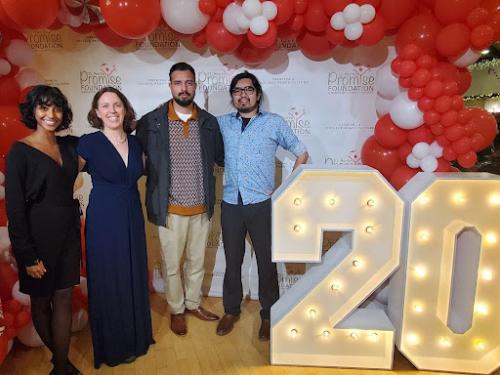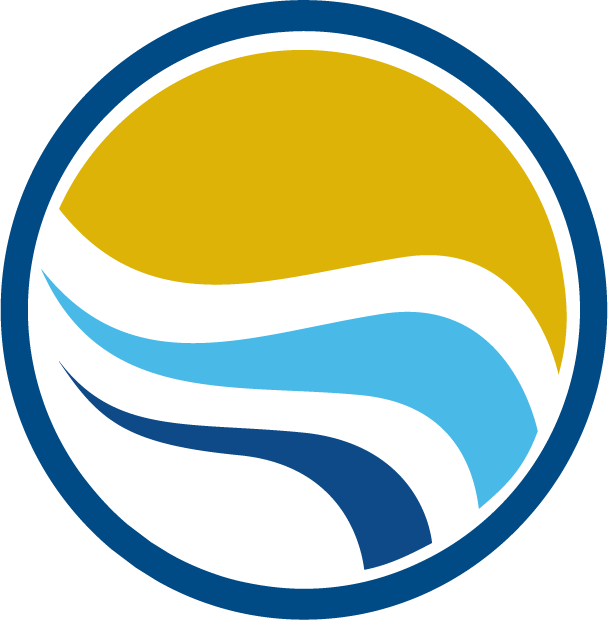Alumni Perspectives: Strengthening foundations with Francisco Arroyo
Running a program involves more than meets the eye. Behind the polished presentations and events, team members are working around the clock to send out emails, coordinate plans, and actualize ideas.
Francisco Arroyo, a current program manager at the El Monte Promise Foundation, knows this well. But his understanding of what it means to run a program began years prior, when he joined the Center for Leadership Learning, or CLL, intern team.
Laying the groundwork

“I got involved with the CLL in 2010,” Francisco recalled. “I was going through quite a bit of culture shock… because I grew up in a bubble of sorts, in a predominantly Latino and Chinese-speaking community.”
Feeling disconnected from his new community, Francisco decided one of his goals would be to find an organization to get involved with on campus.
At the time, CLL director Christie Navarro was recruiting professionals who could speak with college students and guide them in developing leadership skills. Francisco remembered seeing one of their promotional flyers.
“They had plans to launch a program called the Diversity for Leadership Development Program,” he said.
Francisco joined this first iteration of the CLL’s certificate programs. The program would later be renamed Cultivating Leaders for Social Change, but even from this early stage, Francisco said he knew the professionals in charge genuinely cared about helping students.
“That was a major draw for me,” he said. “When I saw the value of the program and how much the presenters cared about their students, I knew I wanted to get more involved.”
Nonetheless, when the center opened positions for student assistants, Francisco felt intimidated by the prospect of working there.
“In high school, I hadn’t done a lot of extracurriculars, or what I saw as leadership experiences. [Things like] bossing people around or delegating tasks,” he explained.
He decided to apply anyway, because he wanted to learn more.
“Even the name — Center for Leadership Learning — made me rethink my understanding of what leadership means.”
He got the position and, without realizing it at the time, began to lay the foundations for CLL’s future.
Building up
When developing a program, Francisco explained, many technical questions need to be addressed. Such questions include, “How do we track our program’s impact? How should we collect and analyze data? What software works best for our program’s needs?”
Not everything will be limelight work, and even at a top university, not all the resources are available to immediately launch a successful program.
As Francisco came to terms with this reality, he took it upon himself to fill in the gaps of knowledge.
“We transitioned to a different management tool for our website and I taught myself how to navigate that system,” he remembered.
He also noticed that the program’s methods for collecting data from student surveys were slow and tedious. Wanting to resolve this issue, he optimized data calculations to increase efficiency.
“I was approaching the work from this perspective of if I see something that we need, but don’t yet have, what can I do to help solve that?” he said.
His perspective serves as a reminder that good leadership requires initiative and humility. It requires taking on difficult tasks, he said, not for the sake of getting a promotion, but simply because the work needs to be done.
“It’s not all glamorous work,” Francisco said, referring to his data calculations. “But it’s very crucial work that needs to happen…There’s metrics and there’s narrative.”
Narrative stories highlight individual experiences and demonstrate what a program already achieved. However, to ensure growth, programs need practical ways of measuring their impact. Feedback in the form of data reveals what worked well and what needs improvement. Overall, said Francisco, “both are important in providing tangible proof of the value that a resource brings."
A program can’t run on metrics and narratives alone, however. Equally as important to a program’s long-term success is the type of work culture established.
For example, Francisco clearly remembers two student assistants who guided him in his onboarding process.
“Sarah and Lou helped create a culture of hard work and passion. The way Sarah approached her job demonstrated to me the importance of putting care into your work, even if it’s a menial task,” he said.
From the example set by CLL's first interns, Francisco decided it was important that he also care about what he does. As a result, he continued to work with the center through 2014. As the center grew — moving from a student apartment complex just off-campus, to North Hall near the Memorial Union, to its current location in the Grove — Francisco also grew to understand what leadership meant to him.
“Leadership is taking accountability. It’s finding opportunities to work with and uplift my partners, for the betterment of our local communities,” he said.
Maintaining your foundations
The work doesn’t stop once a program gets off the ground, either, Francisco said.
After spending four years with CLL, he went on to become a program manager for the El Monte Promise Foundation, an education-based nonprofit that aims to “actively coordinate systems and mobilize resources for the educational benefit of local students."
There, Francisco speaks with educators, parents and school districts about financial literacy and how to navigate higher education. To maintain the success and outreach of his program, Francisco continuously strives to listen and connect with his community.
“Value the relationships you’ve built,” he stressed. “There is no one I know on this earth who made it to where they are by themselves.”
A decade passed since Francisco last worked at the CLL, but he still regularly keeps in contact with staff. He also noted that since graduating, the value of the center’s events resonates even more.
“If you want to attend professional conferences, especially for your industry, there’s often a price tag attached,” he explained. ”Experiences like what CLL offers — they cost quite a lot of money! So, I really think students get their money’s worth, as far as the programing CLL provides.”
For students looking to strengthen their own leadership foundations, he recommended making use of the free resources available to them through the Center for Leadership Learning.
“Take a chance,” he said. “It’s an excellent opportunity.”
The “Alumni Perspectives” series serves two objectives: (1) to help undergraduates understand the purpose and the long-term impacts of our program and (2) to highlight past Center for Leadership Learning members who dedicate their time as leaders to develop themselves and others .
For more information on our workshops, programs and events, check our CLL website.
